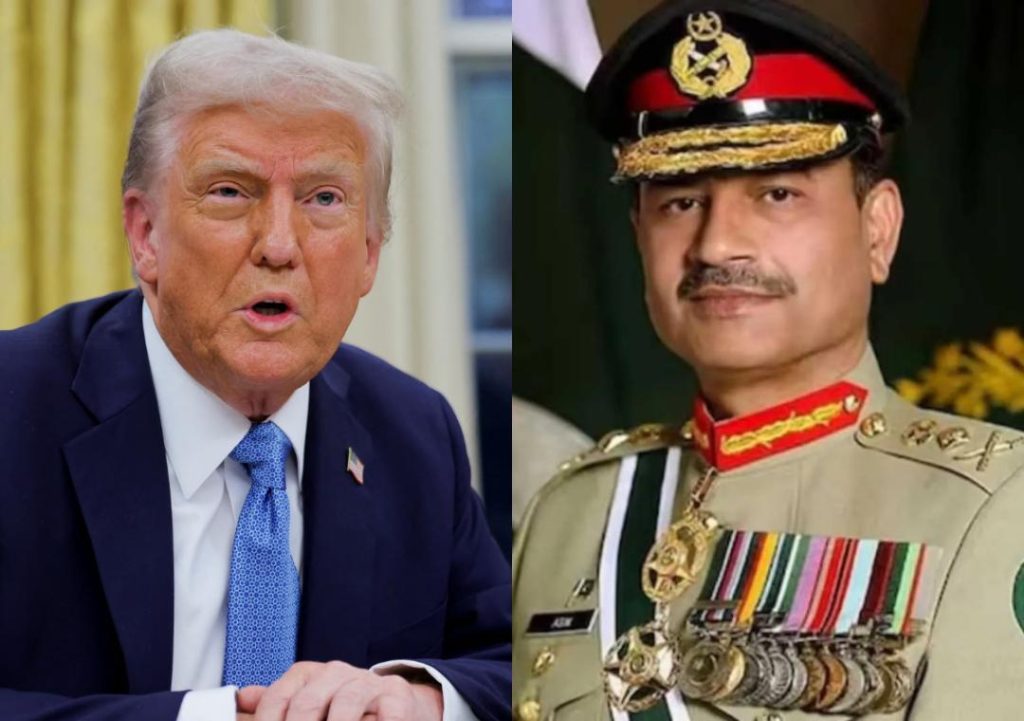
Title: Pak crypto deal with links to Trump, Asim Munir under scrutiny in India & US: Report
In a recent development, a deal between Pakistan’s newly-formed Crypto Council and a US-based crypto firm, World Liberty Financial (WLF), has come under scrutiny in both India and the United States. The controversy surrounding this deal is largely centered around the fact that US President Donald Trump’s family members have significant stakes in WLF, making it a matter of national interest and scrutiny.
For those who may not be aware, Pakistan’s Crypto Council was established just a month ago, and its primary objective is to promote the country’s cryptocurrency industry. The council is backed by the government and is seen as a major step towards integrating Pakistan into the global crypto market. However, the deal with WLF has raised several eyebrows due to its potential implications on the country’s sovereignty and national security.
According to reports, Trump’s sons Eric and Trump Junior, along with son-in-law Jared Kushner, collectively own 60% of WLF. This means that the Trump family has a significant stake in the company, which has sparked concerns about potential conflicts of interest and the impact it may have on Pakistan’s cryptocurrency industry.
The deal between the Pakistan Crypto Council and WLF was signed in the presence of Pakistan Army chief Asim Munir, who personally welcomed US officials who came to sign the agreement. This has raised questions about the extent of Pakistan’s military’s involvement in the country’s cryptocurrency industry and whether it is a sign of increasing influence of the military in the country’s economic affairs.
Critics of the deal have pointed out that the Pakistan government’s decision to partner with WLF, despite its ties to the Trump family, is a clear example of the country’s willingness to compromise its national interests for the sake of economic gains. They argue that by doing so, Pakistan is not only risking its sovereignty but also exposing its citizens to potential financial risks.
On the other hand, proponents of the deal argue that it is a significant step forward for Pakistan’s cryptocurrency industry and that the involvement of WLF, despite its ties to the Trump family, is a testament to the company’s credibility and expertise. They argue that the deal will not only bring in much-needed foreign investment but also help Pakistan to catch up with other countries in the region that have already established themselves as major players in the global crypto market.
The scrutiny of the deal is not limited to India and the United States alone. Pakistan’s opposition parties have also questioned the deal, with some calling for its cancellation. The Pakistan Muslim League-Nawaz (PML-N) party has demanded an explanation from the government on why it chose to partner with WLF despite its ties to the Trump family.
The controversy surrounding the deal has also led to calls for greater transparency and accountability in Pakistan’s cryptocurrency industry. Critics argue that the lack of transparency in the deal has led to widespread speculation and misinformation, which can have serious consequences for the country’s economy.
In conclusion, the deal between Pakistan’s Crypto Council and WLF is a complex issue that has raised several questions about the country’s sovereignty, national security, and economic interests. While proponents of the deal argue that it is a significant step forward for Pakistan’s cryptocurrency industry, critics have raised concerns about the potential implications of the deal on the country’s national interests.
As the controversy surrounding the deal continues to unfold, it remains to be seen how Pakistan will respond to the growing scrutiny and whether it will be able to maintain its independence in the face of increasing pressure from foreign powers.






